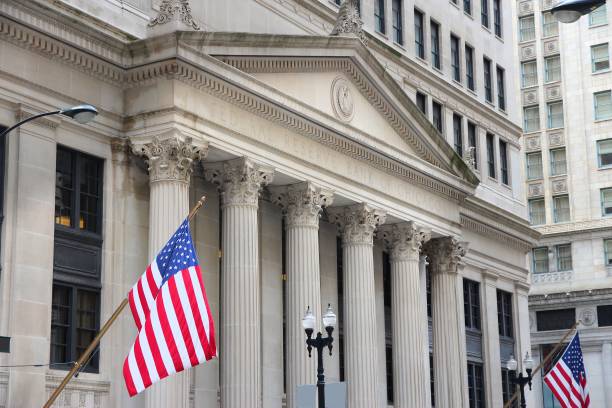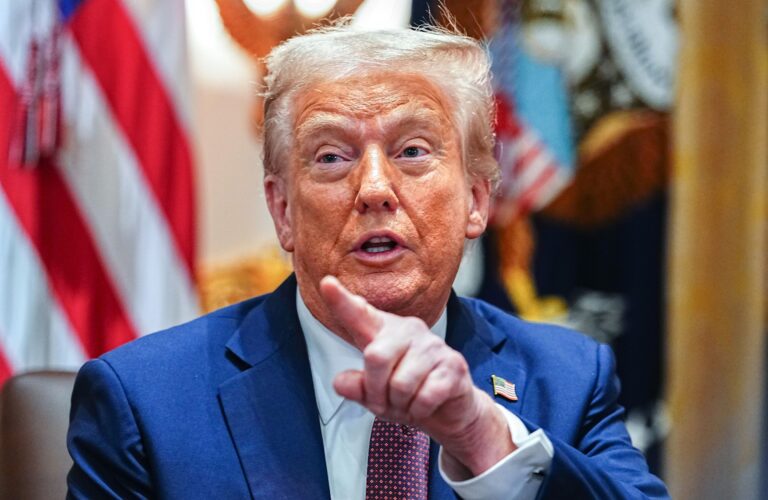
Federal Reserve Bank of Chicago - part of United States central bank.
Global financial markets are on edge as U.S. President Donald Trump’s renewed criticism of central bank independence has sparked fresh concerns over political interference in monetary policy. The remarks, made during recent campaign appearances, have raised questions about the future of the U.S. Federal Reserve’s autonomy should Trump return to the White House.
Trump’s Remarks on the Federal Reserve
During a rally, Trump suggested that the Federal Reserve should be more aligned with the executive branch, particularly in setting interest rates. He argued that unelected officials at the Fed hold “too much power” over the economy, and hinted at reforms to give the White House greater influence over monetary decisions.
These comments reignited debates over central bank independence—a principle seen as crucial for maintaining stable financial systems free from short-term political pressure.
Why Central Bank Independence Matters
Central banks, including the U.S. Federal Reserve, the European Central Bank, and the Bank of England, are designed to operate independently of political control. This autonomy ensures that critical decisions, such as setting interest rates or implementing inflation-control measures, are based on economic data rather than political expediency.
If political leaders gain undue influence, they may push for policies that stimulate short-term growth ahead of elections but cause long-term inflation, debt crises, or market instability.
Market Reactions
Trump’s comments have had immediate ripple effects on global markets:
-
The U.S. dollar saw heightened volatility, with traders weighing potential policy shifts.
-
Bond markets reacted nervously, with yields on U.S. Treasuries inching higher.
-
Stock markets in Asia and Europe also experienced fluctuations, as investors considered the broader implications for global monetary policy.
Analysts warn that undermining the Federal Reserve’s independence could erode confidence in U.S. financial institutions, leading to capital flight and increased borrowing costs.
International Concerns
Trump’s remarks have also drawn international attention, with economists in Europe, Asia, and Africa warning that a politically weakened Federal Reserve would destabilize global trade and investment flows.
The International Monetary Fund (IMF) has long stressed the importance of central bank independence, describing it as a cornerstone of global economic stability. If the U.S. were to politicize monetary policy, other nations could follow suit, leading to a breakdown in coordinated efforts to tackle inflation, recessions, or currency crises.
Economists Sound the Alarm
Prominent economists have weighed in, stressing the dangers of Trump’s position.
-
Paul Krugman, Nobel Prize-winning economist, warned that “political interference in the Fed could spark inflationary cycles similar to what we saw in the 1970s.”
-
Larry Summers, former U.S. Treasury Secretary, argued that weakening central bank independence would damage U.S. credibility and undermine investor confidence.
-
Some Trump-aligned economists, however, contend that the Federal Reserve has too much unchecked power and must be more accountable to elected leaders.
Historical Context
This is not the first time Trump has clashed with the Fed. During his presidency, he frequently criticized then-Fed Chair Jerome Powell, accusing him of keeping interest rates too high and hindering economic growth. Trump even hinted at the possibility of removing Powell—an unprecedented move that alarmed markets at the time.
The current debate echoes similar tensions in countries such as Turkey, where political pressure on the central bank led to currency crises and hyperinflation.
What’s Next?
As the 2024 U.S. presidential election approaches, Trump’s stance on central bank policy will likely remain a central theme. Markets, meanwhile, will continue to respond to any signals of weakening independence at the Federal Reserve.
For global investors, the message is clear: political interference in monetary policy could carry enormous risks, not only for the U.S. economy but also for financial systems worldwide.
Source: Pilla News






